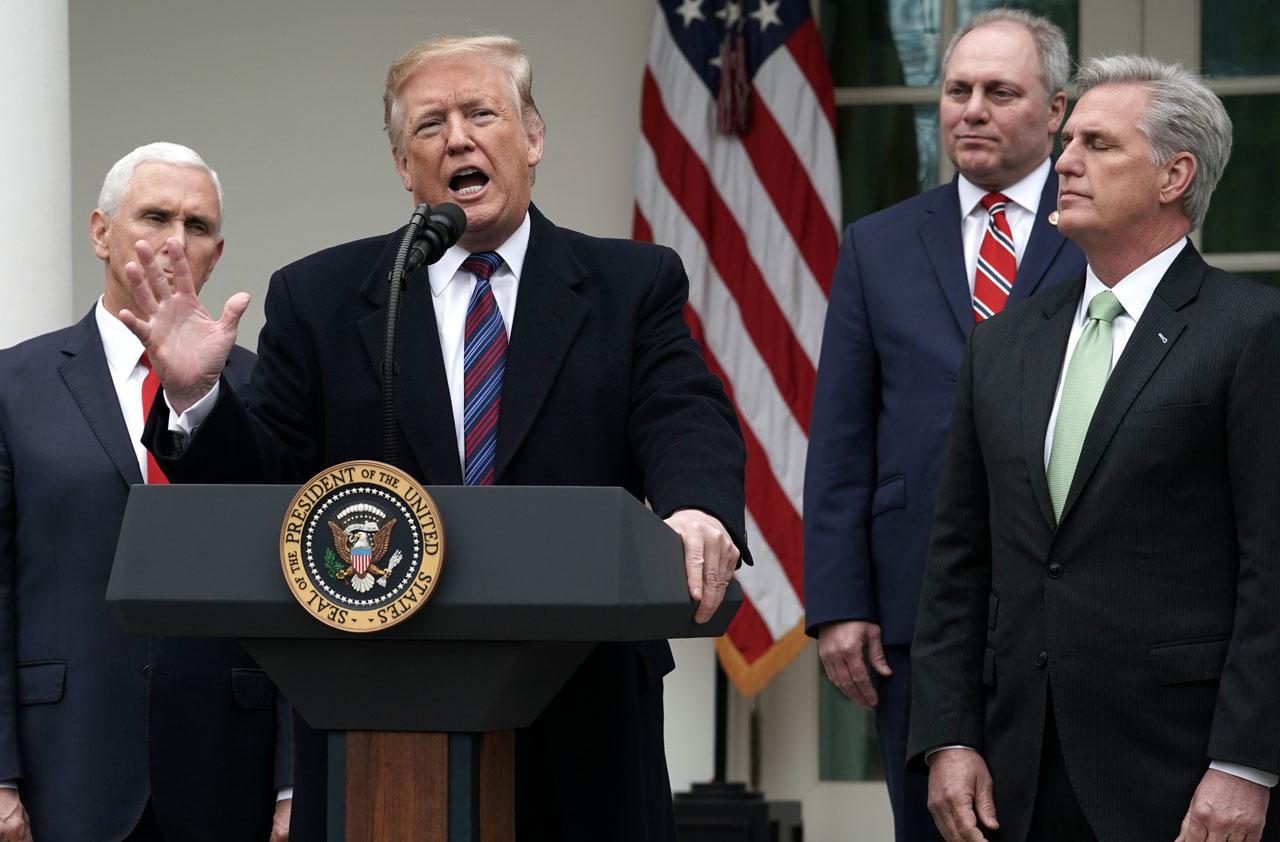Biden's Lame-Duck Agenda
President Biden rushes to tie up loose ends before Trump takes over.

Profit and prosper with the best of Kiplinger's advice on investing, taxes, retirement, personal finance and much more. Delivered daily. Enter your email in the box and click Sign Me Up.
You are now subscribed
Your newsletter sign-up was successful
Want to add more newsletters?

Delivered daily
Kiplinger Today
Profit and prosper with the best of Kiplinger's advice on investing, taxes, retirement, personal finance and much more delivered daily. Smart money moves start here.

Sent five days a week
Kiplinger A Step Ahead
Get practical help to make better financial decisions in your everyday life, from spending to savings on top deals.

Delivered daily
Kiplinger Closing Bell
Get today's biggest financial and investing headlines delivered to your inbox every day the U.S. stock market is open.

Sent twice a week
Kiplinger Adviser Intel
Financial pros across the country share best practices and fresh tactics to preserve and grow your wealth.

Delivered weekly
Kiplinger Tax Tips
Trim your federal and state tax bills with practical tax-planning and tax-cutting strategies.

Sent twice a week
Kiplinger Retirement Tips
Your twice-a-week guide to planning and enjoying a financially secure and richly rewarding retirement

Sent bimonthly.
Kiplinger Adviser Angle
Insights for advisers, wealth managers and other financial professionals.

Sent twice a week
Kiplinger Investing Weekly
Your twice-a-week roundup of promising stocks, funds, companies and industries you should consider, ones you should avoid, and why.

Sent weekly for six weeks
Kiplinger Invest for Retirement
Your step-by-step six-part series on how to invest for retirement, from devising a successful strategy to exactly which investments to choose.
To help you understand what's going on in U.S. politics, and what we expect to happen in the future, our highly experienced Kiplinger Letter team will keep you abreast of the latest developments and forecasts (Get a free issue of The Kiplinger Letter or subscribe). You'll get all the latest news first by subscribing, but we will publish many (but not all) of the forecasts a few days afterward online. Here’s the latest…
Now, the part that every president dreads: The post-election tying up of loose ends, better known as the “lame-duck” period. Here is what you can expect from Joe Biden’s. Biden hopes he can “Trump-proof” his legacy. That means finalizing big regulations in the works. Among them:
- Extreme-heat protections for workers.
- A modernization of the H-1B visa program.
- New limits on lead exposure for children.
- A ban on medical debt in credit reports.
Some of the rules are done now, but don’t take effect until next year. Others have work to be done and may not be finished before January 20, when Trump takes office. Unfinished regulations are easier for a new president to withdraw or start from scratch.
Look for an expedited approval of projects funded by the bipartisan infrastructure law passed during Biden’s first year in office and the CHIPS Act of 2022. Most recently, the Department of Transportation has prioritized projects to improve rail service, ports, and both urban and rural roads. Expect the agency to focus more on clean energy in its final few weeks, given Trump’s desire to deprioritize such projects. Similarly, the Department of Commerce will aim to disburse more of its $53 billion in subsidies to chipmakers, very little of which has actually gone out the door yet.
The White House will also spend as much money as it can on aid to Ukraine, another priority that Trump opposes. The Pentagon still has an estimated $7.1 billion it can use to send weapons from its stockpiles to Kyiv, plus another $2.2 billion for long-term weapons contracts that can help Ukraine resist the Russian invasion.
Ultimately, there is only so much Biden can do to preempt his successor. On the regulatory front, finalizing rules can’t prevent Trump from later repealing them, though it will slow the new administration down. It will also be difficult for Trump to refuse spending money that has already been allocated by Congress; however, he will have a say over how huge amounts of Biden’s signature legislative achievements are spent. By one estimate, there is still nearly $300 billion in infrastructure funding left to award, vs. the $570 billion and counting the Biden administration has spent.
In a few cases, Biden may actually tee up Trump. The new administration will likely expand on Biden’s recently unveiled export control package, intended to target China’s semiconductor industry and other areas of competitive concern. Meanwhile, the Senate will continue confirming Biden’s judicial nominees, despite Republican efforts to slow down the process, at Trump’s urging. So far, Biden has secured 223 Article III judicial confirmations, 45 for federal appeals courts. And he currently has 21 outstanding nominations. Notably, Biden’s final nominee —Tali Farhadian Weinstein of N.Y — won’t have time to gain Senate confirmation.
From just $107.88 $24.99 for Kiplinger Personal Finance
Become a smarter, better informed investor. Subscribe from just $107.88 $24.99, plus get up to 4 Special Issues

Sign up for Kiplinger’s Free Newsletters
Profit and prosper with the best of expert advice on investing, taxes, retirement, personal finance and more - straight to your e-mail.
Profit and prosper with the best of expert advice - straight to your e-mail.
This forecast first appeared in The Kiplinger Letter, which has been running since 1923 and is a collection of concise weekly forecasts on business and economic trends, as well as what to expect from Washington, to help you understand what’s coming up to make the most of your investments and your money. Subscribe to The Kiplinger Letter.
Related stories
- What Trump Will Do Next
- What's Wrong With Trump's Pledge to End Taxes on Social Security Benefits
- 5 Stocks to Buy for a Trump Presidency
Profit and prosper with the best of Kiplinger's advice on investing, taxes, retirement, personal finance and much more. Delivered daily. Enter your email in the box and click Sign Me Up.

-
 Quiz: Do You Know How to Avoid the "Medigap Trap?"
Quiz: Do You Know How to Avoid the "Medigap Trap?"Quiz Test your basic knowledge of the "Medigap Trap" in our quick quiz.
-
 5 Top Tax-Efficient Mutual Funds for Smarter Investing
5 Top Tax-Efficient Mutual Funds for Smarter InvestingMutual funds are many things, but "tax-friendly" usually isn't one of them. These are the exceptions.
-
 AI Sparks Existential Crisis for Software Stocks
AI Sparks Existential Crisis for Software StocksThe Kiplinger Letter Fears that SaaS subscription software could be rendered obsolete by artificial intelligence make investors jittery.
-
 Trump $10B IRS Lawsuit Hits an Already Chaotic 2026 Tax Season
Trump $10B IRS Lawsuit Hits an Already Chaotic 2026 Tax SeasonTax Law A new Trump lawsuit and warnings from a tax-industry watchdog point to an IRS under strain, just as millions of taxpayers begin filing their 2025 returns.
-
 The New Fed Chair Was Announced: What You Need to Know
The New Fed Chair Was Announced: What You Need to KnowPresident Donald Trump announced Kevin Warsh as his selection for the next chair of the Federal Reserve, who will replace Jerome Powell.
-
 Trump Reshapes Foreign Policy
Trump Reshapes Foreign PolicyThe Kiplinger Letter The President starts the new year by putting allies and adversaries on notice.
-
 Congress Set for Busy Winter
Congress Set for Busy WinterThe Kiplinger Letter The Letter editors review the bills Congress will decide on this year. The government funding bill is paramount, but other issues vie for lawmakers’ attention.
-
 The December CPI Report Is Out. Here's What It Means for the Fed's Next Move
The December CPI Report Is Out. Here's What It Means for the Fed's Next MoveThe December CPI report came in lighter than expected, but housing costs remain an overhang.
-
 The Kiplinger Letter's 10 Forecasts for 2026
The Kiplinger Letter's 10 Forecasts for 2026The Kiplinger Letter Here are some of the biggest events and trends in economics, politics and tech that will shape the new year.
-
 Special Report: The Future of American Politics
Special Report: The Future of American PoliticsThe Kiplinger Letter Kiplinger assesses the political trends and challenges that will define the next decade.
-
 The November CPI Report Is Out. Here's What It Means for Rising Prices
The November CPI Report Is Out. Here's What It Means for Rising PricesThe November CPI report came in lighter than expected, but the delayed data give an incomplete picture of inflation, say economists.